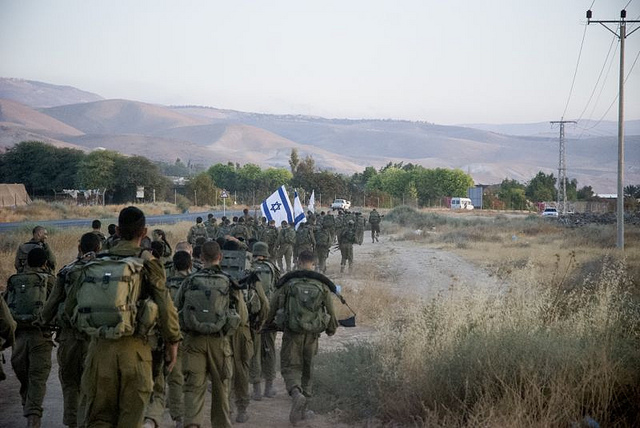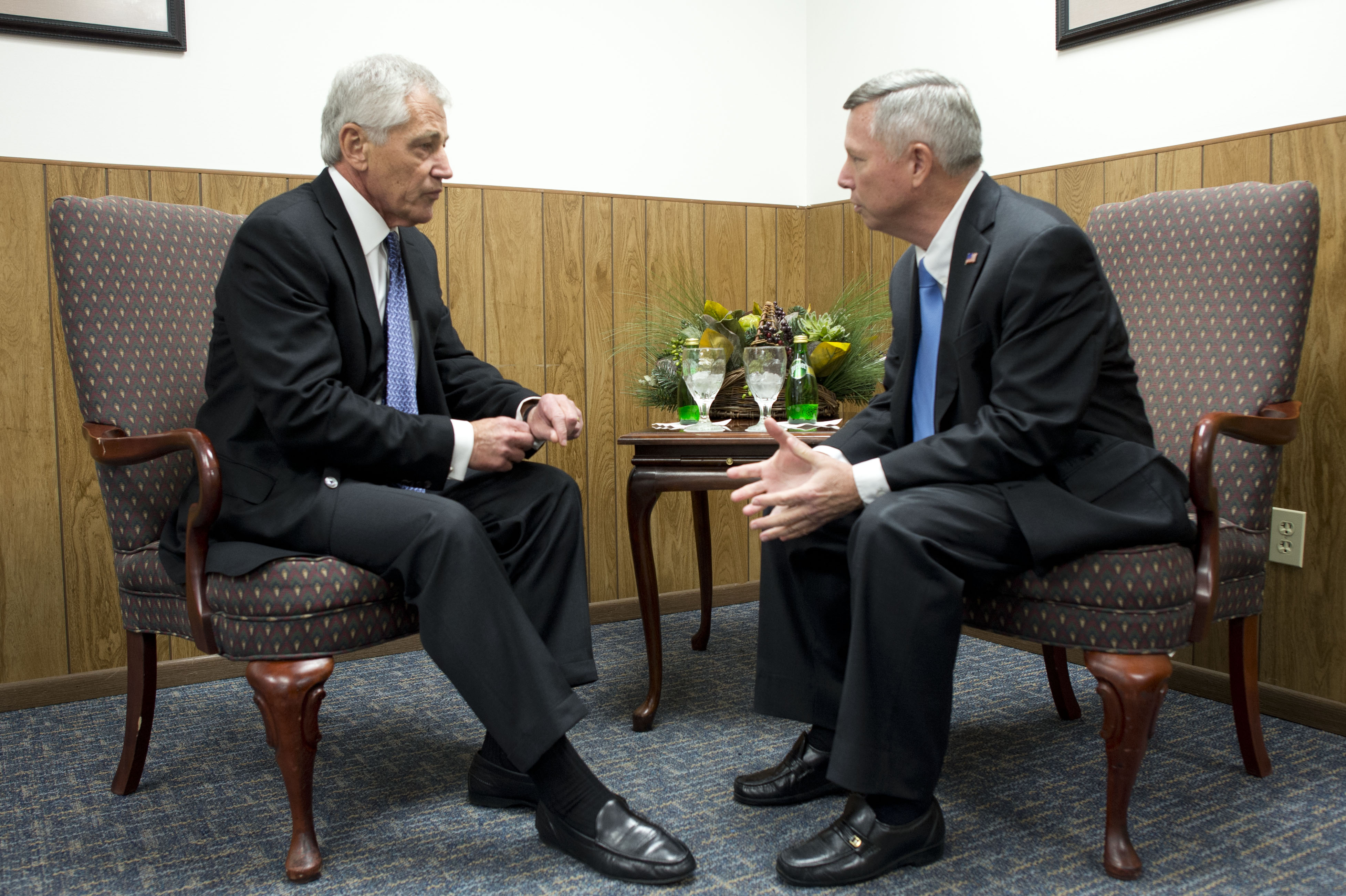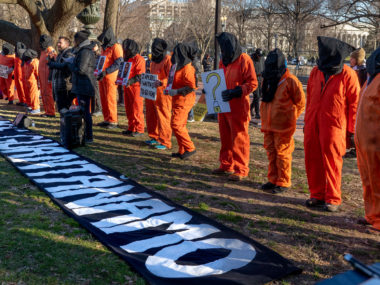Guest post by Ehud Eiran

A Russian-French confrontation in the Holy Land in the middle of the 19th century led to the Crimea War. Now, the conflict that started in Crimea further diminishes the prospects for peace between Israel and its neighbors. As if the Arab-Israeli peace process is not in enough trouble, the unfolding events in Crimea and Ukraine are producing three effects that are shrinking the chances for a resolution of the Arab-Israeli conflict.
First, the crisis, for now, further weakens the American posture in the Middle East. The Israeli Minister of Defense, Moshe Ye’elon, stated in March that “one can hear the voices of the disappointment in the region from the United States, just as you hear them in Europe regarding the way the United States handled Ukraine … weakness does not pay off. I hope the United Sates would regain its composure.” This weakness, even if it is only a perception, is bound to limit the efficacy of American mediation efforts. American dominance in the region in the 1990s brought with it the “decade of peace,” and a weaker America will find it hard to replicate this success.
More specifically, a weaker United States would lack the basic elements that once allowed it to advance peace in the region. Washington would have fewer sticks and carrots. It will also face difficulties in guaranteeing an agreement and in engaging other third parties in the process.
The crisis also heightened the existing tension between Israel and United States over Israel’s reluctance to condemn Russian behavior. This too is bound to weaken Washington’s ability to influence Jerusalem regarding the peace process. The perception of an American departure of sorts from the region would further strengthen Israel’s inclination for self-reliance. Specifically, this is expected to lead to a diminishing Israeli willingness to leave territories in return for security guarantees. The Russian-American tensions are also likely to manifest themselves in other arenas in the region that may then affect Israeli behavior in the peace process. For example, Russia can hinder a resolution of the crisis over the Iranian nuclear project, thus hastening the possibility of an Israeli attack on Tehran’s nuclear sites. In turn, the prospects of an open Israeli-Iranian conflict would make it harder for both Arabs and Israelis to reach an agreement.
The second effect of the Crimea/Ukraine conflict is that it confirms a hardline worldview for parties in the Middle East. The Crimea annexation, after all, was driven by traditional geostrategic arguments regarding the significance of land, the importance of “natural” borders, and the centrality of crude force. In contrast, moderates in the Middle East had been drawing on a different worldview, one that values norms over power, cooperation over confrontation, mutual over zero-sum gains, and the superiority of intangible assets of over the traditional value of territory.
Thirdly, the crisis in the Crimea challenges international norms, and specifically, the prohibition against territorial expansion through force. Since the Second World War this latter norm has been a cornerstone of the international order. In the Middle East, adherence to this norm is a basic foundation of all peace agreements, through the specific mechanism offered in the 1967 UN Security Council Resolution 242. Now, when Russia demonstrates that force, rather than norms, can determine international borders, the already fragile norm that would have lent some support for Israeli withdraw from the Golan Heights and the West Bank is being challenged. With the civil war in Syria and the possibility that Islamists might operate from there, it seems that most Israelis prefer continued Israeli control in the Golan Heights.
The European position in the Ukraine conflict adds one more straw to the challenge to international norms as a possible tool in resolving the Arab-Israeli conflict. Their weak response to Russian expansion will provide proof for hardliners in the Middle East that force, not norms, determines international behavior. The preference Europeans are giving to their gas supplies over normative considerations is sapping the legitimacy of their claim that Israel should leave the West Bank and the Golan Heights.
While most effects of the Crimea/Ukraine conflict will make achieving peace on the Middle East harder, the Russian-Ukrainian conflict has one element that points in the other direction. At least in part, the international system accepted, in effect, Russian occupation of Crimea because the majority of the population there is Russian. While Moscow clearly broke the norm of territorial integrity and the prohibition on forceful expansion, it did so in accordance with the principle of self-determination. Even President Putin, who seems to adhere mostly the principle of force, took note of international norms and staged a referendum in Crimea before it was swallowed by Russia.
All this may mean that although power and territory are back, so is self-determination. Under these circumstances, it might be harder for Israel to hold on to the West Bank when most of the territory’s population resents Israel’s domination.
The broader lesson for the feuding parties in the Middle East maybe the following: much as the international environment of the 1990s supported a regional peace process, the current environment — as much as we can extrapolate from events in the Ukraine — diminishes the chances for such a process to flourish.
Ehud Eiran is an Assistant professor at the School of political science at the University of Haifa in Israel and a faculty affiliate at the Middle East Negotiation Initiative at the program on negotiation, Harvard Law School. He previously served as the assistant to the foreign policy advisor to Israel’s Prime Minister.






2 comments
This article seems somewhat illogical. Dominant American power has not led to any real ‘peace process’ in Israel-Palestine, as the present situation clearly demonstrates. As long as Israel was sponsored by a unique world superpower, there was no reason for its leadership to compromise with its opponents. And the Palestinians could not compromise because they had nowhere to go and nothing much left to give up.
The decline of American power evident in recent events seems likely to lead to a new situation, a less stable one which will offer both increased danger and increased opportunity. It is hard to predict what will happen, but a continuation of the present impasse is improbable.
I don’t think American power has decreased one whit. What has decreased is America’s interest in exercising it.
Recall that the US is now the largest natural gas producer in the world with reserves of that fuel that eclipse known reserves of oil in Saudi Arabia. By next year the US might become the biggest oil producer in the world again. And recall where most of our off-shore oil comes from now: that’d be Venezuela. The strategic resource that led the US to intervene in the ME for so long doesn’t loom large as a concern for the immediate future. Now, add in the increasing share of renewable power resources here and in Europe and the demise of any greta power rivalry in the region. To put it bluntly, the US hasn’t had so little incentive to swing its weight around in the ME since – oh, I don’t know – the Harding administration.
About the only concern we now have is to restrain Israel from use of its nuclear weapons. That’s not an inconsiderable problem, but I think we can take it as read that the US wouldn’t intervene in a ME war again over it. (Recall what Kissinger said to the Germans about being hit with Soviet MRBMs.) This, of course, runs into a huge internal lobby of ME “policy experts” (I was just watching a panel of these folks on CSPAN), “think tanks”, and, of course, the president’s political opponents. It’s hard to turn the oil tanker around when domestic politics is involved.
In short, we are trying to withdraw slowly from anything but diplomatic commitments in the ME not because the US is “weak”, but because ME policy simply doesn’t matter as much now as it did even 5 years ago.